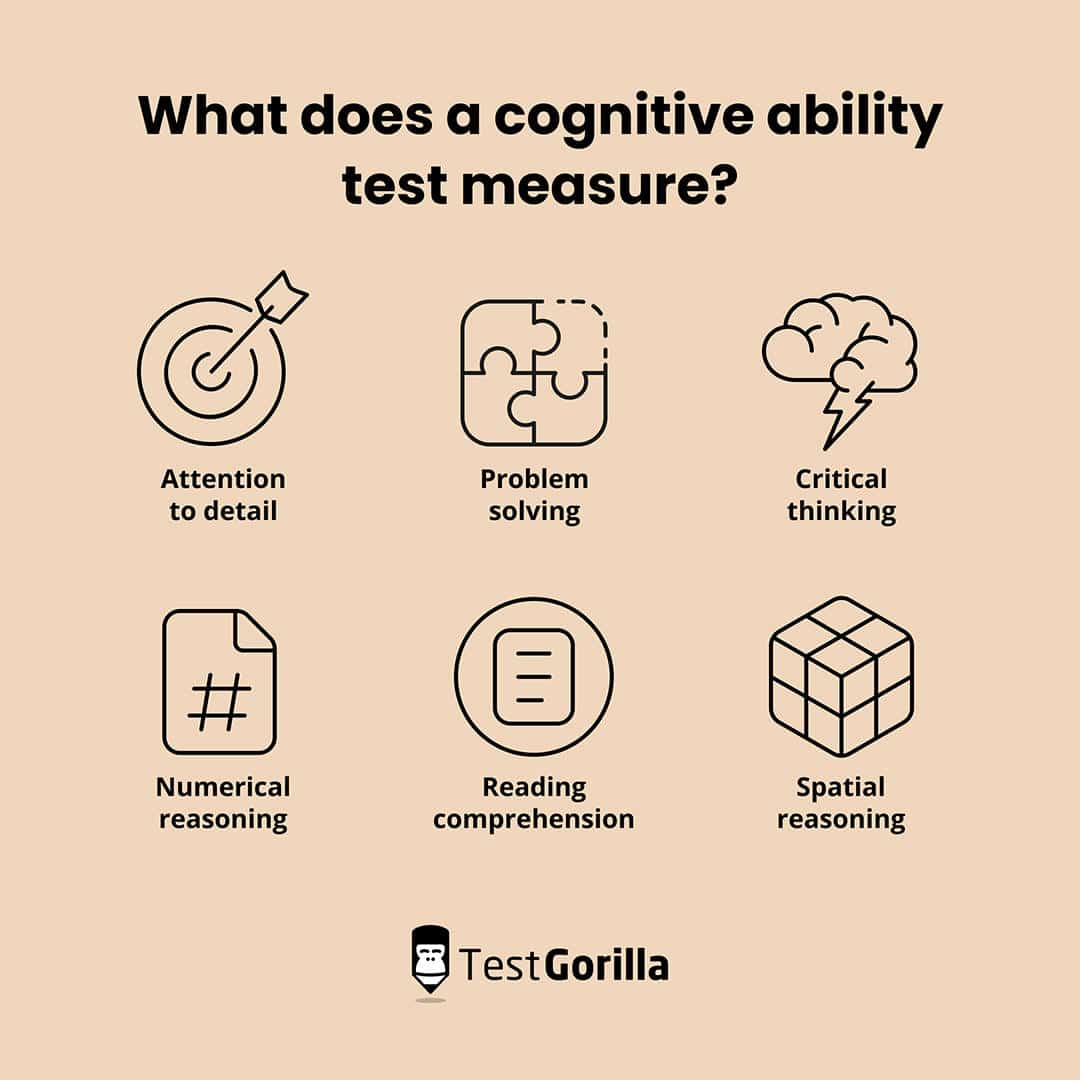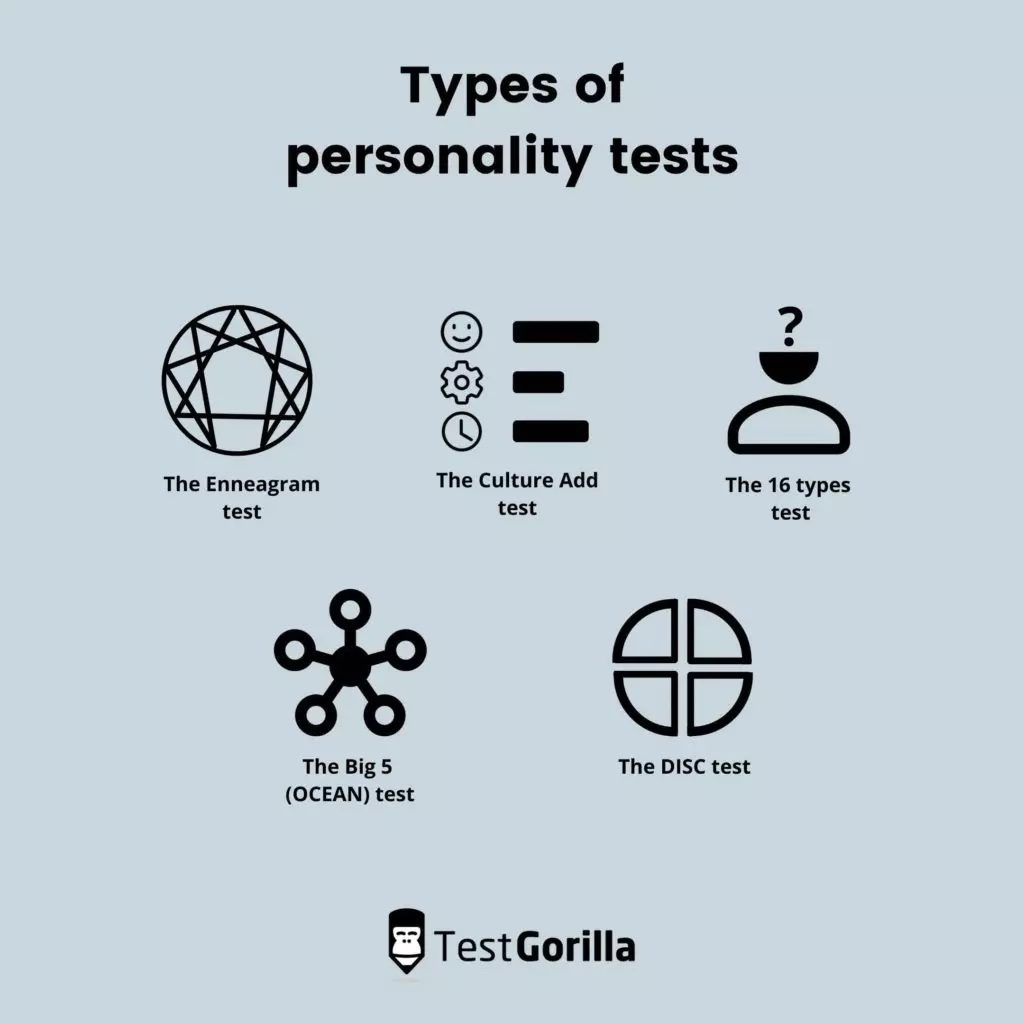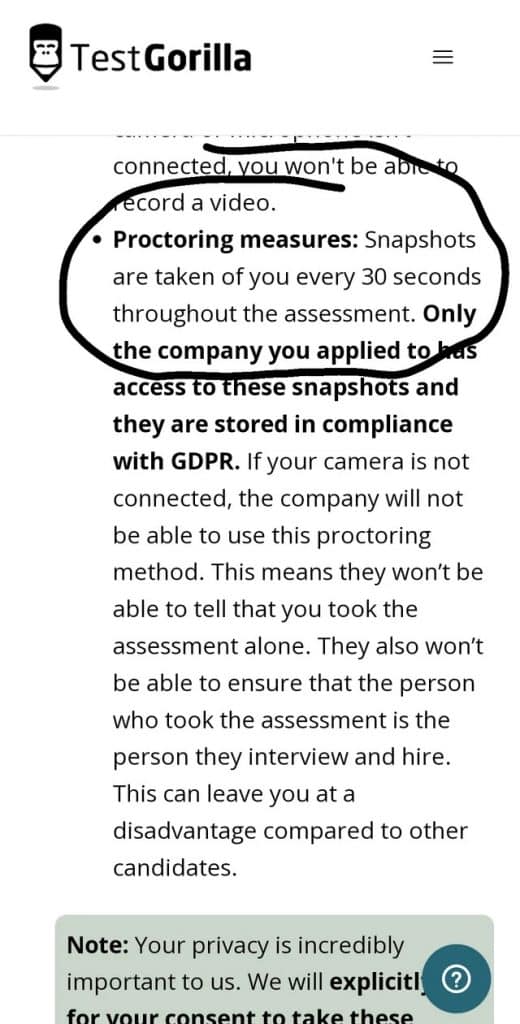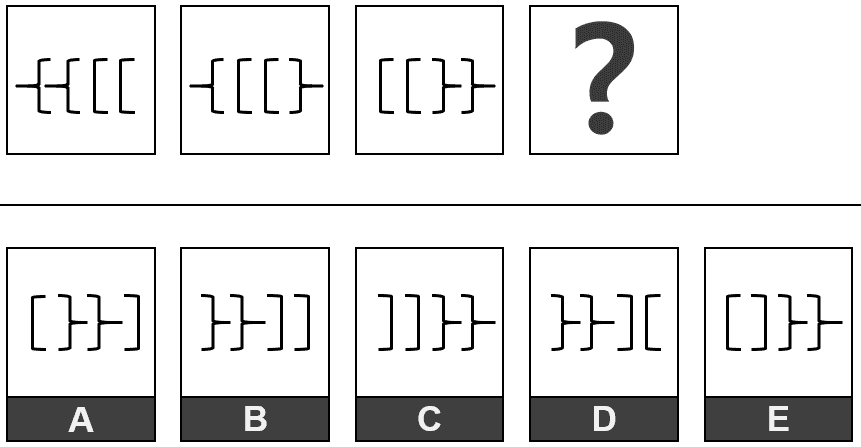TestGorilla Practice Test
Picture this: you’ve landed your dream job interview, but wait, there’s one more hurdle – the TestGorilla Assessment. Don’t fret! This isn’t your average, paper-and-pencil exam. Instead, think of it as a dynamic skills showcase, designed to give employers a deeper understanding of your aptitudes and potential.
Here’s the lowdown:
- Tailored Approach: Each TestGorilla Assessment is unique, crafted by the company based on the specific requirements of the role. This means you’ll be evaluated on the skills that truly matter for success in that position.
- Skills Spotlight: TestGorilla goes beyond traditional resumes and cover letters, assessing a diverse range of skills. Think cognitive abilities, like problem-solving and critical thinking, alongside job-specific skills like coding, data analysis, or language fluency. Even personality and cultural fit assessments might be included, painting a well-rounded picture of your suitability.
- Interactive Format: Forget monotonous multiple-choice questions. TestGorilla assessments are engaging and interactive, often featuring gamified elements, simulations, and real-world scenarios. This keeps things interesting and allows you to demonstrate your skills in a dynamic way.
- Global Reach: With over 400 validated tests in its library and support for 20 languages, TestGorilla caters to a global audience. So, no matter where you are in the world, you can expect a fair and standardized assessment experience.
Remember, a TestGorilla Assessment isn’t just about getting a high score. It’s about showcasing your unique skills and potential in a way that resonates with the employer. So, take a deep breath, relax, and get ready to shine!
Did you know?
TestGorilla holds a few surprises! Assessments can combine pre-built tests with company-specific questions, so research your target role for hints. Scoring focuses on showcasing your best, not comparing you to others. Think sharp attention to detail, clear communication, and pressure-proof thinking, qualities often seen in successful test-takers. Plus, the online format lets you shine from the comfort of your own device. Remember, employers use these results to objectively compare candidates and find the perfect cultural fit with the right skillset – that’s you!
TestGorilla Navigation Pad
Test types explained
Results scale & interpretations
Frequently asked questions
Test Types Explained
The TestGorilla Assessment isn’t a one-size-fits-all experience. Each assessment is tailored to the specific role, incorporating different test types to evaluate your suitability. Buckle up, as we explore the diverse types you might encounter:
1. Cognitive Ability Tests:
- What they assess: These tests gauge your general mental capacity, including problem-solving, critical thinking, attention to detail, and memory.
- Skills needed: Analytical thinking, logic, ability to identify patterns, and quick thinking under pressure.
2. Language Tests:
- What they assess: These tests evaluate your proficiency in a specific language, typically focusing on reading comprehension, grammar, and vocabulary.
- Skills needed: Strong understanding of the tested language, including its nuances and grammar rules.
3. Personality and Culture Tests:
- What they assess: These tests delve into your personality traits, work style, and values to determine your cultural fit within the company.
- Skills needed: Self-awareness, honesty, and the ability to showcase how your personality aligns with the company’s values.
4. Programming Skills Tests:
- What they assess: These tests measure your coding abilities through practical challenges and problem-solving scenarios specific to the programming language required for the role.
- Skills needed: Solid understanding of the relevant programming language, syntax, and problem-solving skills tailored to coding challenges.
5. Role-Specific Skills Tests:
- What they assess: These tests delve into the specific skills and knowledge required for the job, like financial analysis for an accounting role or data analysis for a marketing position.
- Skills needed: In-depth knowledge of the specific job requirements and any relevant software or tools used in the role.
6. Situational Judgment Tests:
- What they assess: These tests present you with realistic work scenarios and ask you to choose the most appropriate response, evaluating your decision-making and judgment skills.
- Skills needed: Strong understanding of the company’s values and culture, ability to prioritize, and make ethical and professional decisions under pressure.
7. Software Skills Tests:
- What they assess: These tests evaluate your proficiency in specific software programs relevant to the role, like Microsoft Office Suite or project management software.
- Skills needed: Hands-on experience and familiarity with the tested software, including its functionalities and keyboard shortcuts.
8. Typing Speed Tests:
- What they assess: These tests measure your typing speed and accuracy, important for roles requiring efficient written communication.
- Skills needed: Practice and familiarity with a standard keyboard layout to achieve a comfortable and accurate typing speed.
Remember, this is just a taste of the diverse assessment types. Stay tuned for further insights on each test, helping you conquer the TestGorilla Assessment with confidence!
| Test Type | Primary Focus |
|---|
| Cognitive Ability | Problem-solving, analytical skills |
| Language | Language proficiency, grammar, vocabulary |
| Personality and Culture | Work style, personality traits |
| Programming Skills | Coding, software development |
| Role-specific Skills | Job-specific knowledge and skills |
| Situational Judgment | Decision-making in work scenarios |
| Software Skills | Proficiency in software applications |
| Typing Speed | Speed and accuracy in typing |
Source: iPREP
The TestGorilla assessment for my marketing coordinator role was surprisingly diverse! It wasn’t just a slog of multiple-choice questions. There were interactive elements, like sorting marketing campaign ideas into categories based on target audience and budget. Plus, I had to write a short email responding to a customer complaint, which definitely tested my communication skills under pressure. Overall, it felt more like a real-world scenario than a traditional test, which I actually enjoyed.
Sarah Johanns, Marketing Coordinator
1. Cognitive Ability Tests
Get ready to flex your mental muscles! Cognitive ability tests are a common element of TestGorilla assessments, designed to reveal your raw brainpower and potential. But fear not, intrepid test-taker, for with the right preparation and understanding, you can ace this challenge. Here’s your comprehensive guide to conquering TestGorilla’s cognitive ability tests:
What’s on the Table?
TestGorilla’s cognitive ability tests encompass various subcategories, each measuring a specific mental skill:
- Numerical Reasoning: Prepare for calculations, percentages, ratios, and interpreting data presented in charts, graphs, and tables. Brush up on your basic math skills and practice applying them to word problems in a time-bound setting.
- Problem Solving: Get ready for logic puzzles, brain teasers, and analytical challenges. Hone your critical thinking skills, ability to identify patterns, and think outside the box to approach these problems strategically.
- Verbal Reasoning: Expect to analyze written information, draw conclusions, and identify logical fallacies. Strengthen your reading comprehension, vocabulary, and ability to critically evaluate arguments presented in text.
- Attention to Detail: Prepare for tasks requiring meticulous focus and accuracy. Practice proofreading, identifying inconsistencies, and spotting small details that might hold the key to the answer.
- Inductive Reasoning: Be ready to identify patterns and trends in sequences of numbers, shapes, or symbols, and predict the next element in the series. Sharpen your ability to recognize patterns and make logical deductions based on incomplete information.
Sharpening Your Cognitive Edge:
Now that you know what to expect, here are some tips to optimize your performance:
- Practice, Practice, Practice: Numerous online resources offer cognitive ability test practice questions. Familiarize yourself with the format, question styles, and time pressure you’ll encounter in the actual test.
- Stay Calm and Focused: Remember, these tests assess your ability to think under pressure. Take deep breaths, manage your time effectively, and don’t get bogged down on any single question.
- Read Carefully: Don’t rush through instructions or questions. Pay close attention to keywords and phrasing, as small details can make a big difference in your answer.
- Eliminate Obvious Wrong Answers: This can narrow down your choices and increase your chances of selecting the correct answer, especially when time is limited.
- Guess Strategically: If you’re truly stuck, make an educated guess based on the remaining options and the information provided in the question.
- Stay Positive: Believe in your abilities and approach the test with a positive attitude. Remember, these tests are designed to be challenging, so don’t get discouraged if you don’t know the answer to every question.
Remember: Cognitive ability tests are not about showcasing memorized facts, but rather about demonstrating your thought process, problem-solving skills, and ability to think critically under pressure. By understanding the different types of questions, familiarizing yourself with the format, and employing the right strategies, you can crack the code of TestGorilla’s cognitive ability tests and showcase your true intellectual potential.

2. Language Tests
Whether you’re a seasoned polyglot or a language enthusiast, TestGorilla’s language tests can pop up in your assessment journey. Don’t fret, language learner! This guide will equip you to navigate these tests with confidence and showcase your linguistic prowess.
Decoding the Language:
TestGorilla’s language tests come in various flavors, typically focusing on:
- English Proficiency: These tests assess your understanding and command of the English language across various levels, from basic communication (A2) to mastery (C2). Expect reading comprehension, grammar, and vocabulary challenges tailored to your specific level.
- Business English: Geared towards professional settings, these tests evaluate your ability to effectively communicate in an English business context. Prepare for reading emails, reports, and other workplace documents, along with writing tasks and comprehension of business terminology.
- Other Languages: Depending on the company’s needs, you might encounter tests in French, German, Spanish, or other languages relevant to the role. The format and difficulty will vary based on the chosen language and the required proficiency level.
Sharpening Your Linguistic Edge:
To ace these tests, consider the following strategies:
- Brush Up on Fundamentals: Revisit grammar rules, vocabulary building, and reading comprehension exercises specific to the tested language.
- Immerse Yourself: Surround yourself with the language through movies, music, news articles, or even language exchange programs.
- Practice Makes Perfect: Utilize online resources and practice tests to familiarize yourself with the format, question types, and time constraints.
- Expand Your Vocabulary: Focus on learning industry-specific terms and expressions relevant to the job you’re applying for.
- Read Actively: When encountering practice materials or language learning resources, don’t just passively read. Actively analyze sentence structure, vocabulary usage, and the overall flow of the text.
- Practice Writing: Regularly write emails, essays, or short stories in the tested language to improve your written fluency and expression.
Remember: Language tests assess not just your vocabulary and grammar knowledge, but also your ability to communicate effectively and understand nuances in the given context. By actively preparing, immersing yourself in the language, and practicing various skills, you can demonstrate your linguistic proficiency and impress potential employers.
3. Personality and Culture Tests
Personality and culture tests might seem daunting, but fear not! These assessments offer a chance to showcase your authentic self and demonstrate how you’d fit into the company’s values and work environment. Here’s your guide to navigating these introspective tests with confidence:
The Big Picture:
TestGorilla’s personality and culture tests come in various forms, such as:
- DISC: This popular framework categorizes personalities into Dominance, Influence, Steadiness, and Conscientiousness, helping assess your communication style, teamwork preferences, and decision-making tendencies.
- Big Five (OCEAN): This model delves into Openness to experience, Conscientiousness, Extraversion, Agreeableness, and Neuroticism, providing insights into your adaptability, work ethic, and emotional stability.
- Enneagram: This test explores nine personality types based on core motivations and fears, offering a deeper understanding of your values and drives.
- Culture-fit tests: These assessments are customized by the company to evaluate how your values, work style, and preferences align with their specific culture and expectations.
Unlocking Your Inner Compass:
To excel in these tests, remember:
- Honesty is Key: These tests aren’t about giving “right” answers, but about being true to yourself. Reflect genuinely on your strengths, weaknesses, and how you navigate different situations.
- Research the Company: Understanding the company’s values, mission, and work environment will help you choose responses that resonate with their culture.
- Focus on Your Fit: Highlight examples from your experiences that demonstrate how your personality and values align with the company’s expectations.
- Be Authentic: Don’t try to fabricate a persona that doesn’t reflect your true self. Companies value authenticity and genuine cultural fit.
- Relax and Reflect: Approach the test with a calm and introspective mindset. Take your time reading questions and thoughtfully consider your responses.
Remember: These tests aren’t about finding the “perfect” personality, but about identifying individuals who will thrive within the company’s unique culture and contribute positively to their team. By being honest, self-aware, and demonstrating how your values align with theirs, you can make a lasting impression and showcase your true potential.

4. Programming Skills Tests
Calling all coders! If you’re facing a TestGorilla assessment with programming challenges, buckle up! This guide will equip you to showcase your coding skills and impress potential employers.
Demystifying the Code:
TestGorilla’s programming skills tests come in various flavors, tailored to different languages and skill levels:
- Entry-Level: These tests evaluate basic coding concepts, algorithms, and syntax in popular languages like Python, Java, or JavaScript. Expect tasks like solving simple coding problems, manipulating data structures, and demonstrating understanding of fundamental coding principles.
- Intermediate-Level: Get ready for more complex challenges that delve deeper into algorithms, data structures, and problem-solving skills using a chosen language. You might encounter challenges like implementing specific algorithms, optimizing code for efficiency, or working with more complex data structures.
- Language-Specific Tests: Depending on the job requirements, you might face tests focused on specific languages like C++, R, or Scala. These tests will assess your proficiency in that language’s syntax, libraries, and tools relevant to the role.
Sharpening Your Coding Edge:
To conquer these tests, consider the following strategies:
- Brush Up on Fundamentals: Revisit core programming concepts, algorithms, and data structures. Use online resources, tutorials, and practice problems to solidify your understanding.
- Choose Your Weapon Wisely: Select the programming language you’re most comfortable with for the test. If uncertain, research the typical language used in the target role and tailor your preparation accordingly.
- Practice, Practice, Practice: Utilize online coding platforms and practice challenges specific to the language and skill level of the test. The more you code under pressure, the better you’ll adapt to the test environment.
- Read the Problem Carefully: Don’t rush into coding. Understand the problem statement, identify key requirements, and break down the problem into smaller, solvable steps before writing any code.
- Test Your Code Thoroughly: Don’t assume your code is flawless. Write unit tests to ensure your code functions as intended and handles different input scenarios.
- Think Like a Professional: Write clean, commented, and well-structured code that demonstrates good coding practices and adherence to industry standards.
Remember: These tests aren’t just about writing code, but also about showcasing your problem-solving approach, efficiency, and ability to think critically. By practicing regularly, understanding the concepts, and writing clean code, you can impress potential employers with your programming prowess and stand out from the competition.
5. Role-Specific Skills Tests
Gearing up for a TestGorilla assessment with role-specific skills tests? Don’t sweat it! These tests offer an opportunity to shine by showcasing your specific knowledge and expertise relevant to the target job. Let’s dive into what these tests entail and how you can ace them:
Decoding the Specificity:
TestGorilla’s role-specific skills tests are unique for each position, designed to evaluate your proficiency in the areas crucial for success in that specific role. Expect these tests to cover:
- Industry Knowledge: Be prepared to demonstrate your understanding of the industry, key players, and relevant trends related to the job you’re applying for. Research industry reports, news articles, and expert insights to stay informed.
- Software Proficiency: If the role involves using specific software programs, expect questions assessing your knowledge and hands-on skills in those tools. Practice using the software beforehand and familiarize yourself with common functionalities and keyboard shortcuts.
- Job-Specific Skills: These tests will delve into the core skills and competencies required for the role. For a financial analyst role, expect questions on financial analysis techniques and tools. For a marketing position, be ready to tackle challenges related to campaign management or data analysis.
- Technical Acumen: Depending on the role, you might encounter tests assessing your understanding of relevant technical concepts and principles. For a software developer role, this could involve understanding software development methodologies or specific technical frameworks.
Sharpening Your Role-Specific Edge:
Conquering these tests requires targeted preparation:
- Research the Role: Deep dive into the job description, company website, and any available information about the specific role and its requirements.
- Brush Up on Industry Knowledge: Stay updated on industry trends, key players, and recent developments relevant to the target job.
- Practice with Software: If software proficiency is key, familiarize yourself with the relevant tools and practice using them beforehand. Utilize online tutorials, practice projects, or even free versions of the software to gain hands-on experience.
- Target Your Skillset: Focus on practicing skills specifically mentioned in the job description and required for the role. Look for online practice tests or resources tailored to the specific job you’re applying for.
- Showcase Your Expertise: When answering questions, don’t just present knowledge; use examples from your past experience to demonstrate how you’ve applied those skills in real-world scenarios.
Remember: These tests aren’t just about ticking boxes; they’re about demonstrating your passion and suitability for the specific role. By showcasing your in-depth knowledge, proficiency in required software, and relevant skills, you’ll impress potential employers and stand out from the crowd.
6. Situational Judgment Tests
Get ready to step into the shoes of your future self! Situational judgment tests (SJTs) in a TestGorilla assessment simulate real-world work scenarios, evaluating your decision-making, problem-solving, and ethical judgment under pressure. Here’s your guide to navigating these tests with confidence:
Understanding the Challenge:
TestGorilla’s SJTs present you with realistic work-related situations and ask you to choose the most appropriate response from several options. These scenarios can cover various aspects, such as:
- Dealing with conflict: How would you handle a disagreement with a colleague or client?
- Prioritizing tasks: How would you manage your workload when faced with competing deadlines?
- Ethical dilemmas: How would you approach a situation that presents ethical challenges?
- Teamwork and collaboration: How would you contribute to a team project and resolve issues within the group?
Sharpening Your Judgment Edge:
To excel in these tests, consider the following strategies:
- Put Yourself in the Shoes of the Role: Imagine yourself in the presented scenario, occupying the specific job position. Consider the company’s values, ethical guidelines, and expected professional conduct.
- Analyze the Options Carefully: Don’t jump to the first seemingly “correct” answer. Read each option thoroughly and evaluate its potential consequences and alignment with the company’s values.
- Choose the Most Ethical and Effective Response: Prioritize options that demonstrate integrity, professionalism, and respect for others, while also considering the effectiveness in achieving the desired outcome.
- Think Long-Term: Don’t just focus on solving the immediate issue. Consider the potential long-term impact of your chosen response on the situation, other individuals, and the company’s reputation.
- Practice with Sample Tests: Utilize online resources or practice SJTs specific to your industry or job role. This will familiarize you with the format, question styles, and thought process required for these tests.
Remember: SJTs are not about finding the “right” answer, but about demonstrating your thought process, decision-making abilities, and alignment with the company’s values and ethical standards. By carefully analyzing the scenarios, prioritizing ethics and effectiveness, and practicing your judgment skills, you can impress potential employers and showcase your suitability for the role.
Bonus Tip: Research the company’s values and mission statement beforehand. Understanding their cultural expectations can help you make choices that resonate with their work environment and ethical principles.
Honestly, familiarizing myself with the TestGorilla platform beforehand was my saving grace. Sample tests helped me understand the interface and question styles. Brushing up on basic math and grammar didn’t hurt either!
Aisha Khan, Marketing Coordinator
7. Software Skills Tests
Calling all software aficionados! Whether you’re a coding whiz or a tech-savvy professional, TestGorilla’s software skills tests can appear in your assessment journey. Don’t fret! This guide will equip you to showcase your software proficiency and impress potential employers.
Demystifying the Software Arena:
TestGorilla’s software skills tests come in various flavors, tailored to different software programs and industries:
- Office Suite Proficiency: Master the art of Microsoft Word, Excel, PowerPoint, or other relevant office applications through tests evaluating your ability to manipulate data, create presentations, and format documents efficiently.
- Project Management Tools: Demonstrate your prowess in managing projects through tests focused on popular tools like Jira, Asana, Trello, or MS Project. Expect challenges related to task management, resource allocation, and project planning.
- Industry-Specific Software: Depending on the target role, you might encounter tests assessing your expertise in specialized software used in that industry. For example, a marketing role might involve tests on social media management platforms or analytics tools.
Sharpening Your Software Edge:
To conquer these tests, consider the following strategies:
- Identify the Tested Software: Research the specific software programs mentioned in the job description or assessment details. Focus your preparation on mastering their functionalities and keyboard shortcuts.
- Practice Makes Perfect: Utilize online tutorials, practice exercises, or even free trials of the software to gain hands-on experience and familiarize yourself with its features.
- Think Like a Pro: Don’t just click buttons aimlessly. Understand the purpose of each task and choose the most efficient and professional way to achieve it within the software.
- Time Management is Key: Practice working under pressure, as these tests often have time constraints. Get comfortable navigating the software quickly and accurately.
- Showcase Your Expertise: Go beyond basic functionality. Highlight advanced features you’re proficient in and demonstrate your ability to solve problems creatively using the software.
Remember: These tests aren’t just about ticking boxes; they’re about demonstrating your practical skills, efficiency, and ability to thrive in a software-driven environment. By actively practicing, understanding the specific software, and showcasing your expertise, you’ll impress potential employers and stand out from the competition.
Bonus Tip: If possible, attend webinars or training sessions offered by the software companies themselves. This can provide valuable insights and advanced techniques that might impress during the test.
8. Typing Speed Tests
Whether you’re a wordsmith extraordinaire or a keyboard warrior in training, TestGorilla’s typing speed tests can assess your efficiency and accuracy in written communication. Don’t fret, typing champions! This guide will equip you to showcase your lightning-fast fingers and impress potential employers.
Decoding the Typing Challenge:
TestGorilla’s typing speed tests come in two flavors:
- Lowercase Only: These tests evaluate your speed and accuracy in typing lowercase letters, numbers, and symbols. Expect passages, sentences, or random word sequences to appear, challenging your finger dexterity and familiarity with the standard keyboard layout.
- Capitalization and Punctuation: This version adds the complexity of capitalization and punctuation, requiring you to demonstrate your mastery of grammar and attention to detail while maintaining speed.
Sharpening Your Typing Edge:
To conquer these tests and leave recruiters in awe of your skills, consider these strategies:
- Practice, Practice, Practice: Utilize online typing tutors, games, or dedicated platforms like TypingClub or NitroType. Start with basic drills and gradually progress to complex passages and speed tests mirroring the format of the TestGorilla assessments.
- Focus on Accuracy: Speed is essential, but don’t sacrifice accuracy. Aim for a balance between quick typing and minimal errors. Practice proofreading your work and identifying your common mistakes.
- Master the Keyboard Layout: Ensure you’re comfortable typing without looking at the keyboard. This allows you to focus on the text and optimize your speed. If needed, invest in a keyboard layout diagram or typing practice software that visualizes finger placement.
- Maintain Proper Posture: Sit up straight with your wrists relaxed and hands evenly positioned on the keyboard. Good posture minimizes fatigue and allows for sustained typing performance.
- Warm Up Your Fingers: Before the test, spend a few minutes engaging in light typing exercises or stretches to loosen up your fingers and prepare them for the challenge.
Remember: These tests assess not just your raw speed, but also your ability to type accurately and efficiently under pressure. By consistently practicing, maintaining good form, and focusing on both speed and accuracy, you can conquer these tests and showcase your proficiency in written communication.
The typing speed test was quick and painless. It helped me showcase my ability to type accurately and efficiently, which is important for the administrative role I was applying for.
Mia Gonzalez, Administrative Assistant
Preparation Strategies
The TestGorilla Assessment might seem like a looming obstacle, but don’t fret! With focused preparation and the right strategies, you can ace it and showcase your potential to employers. Here’s your 7-step battle plan:
1. Know Your Enemy: Information is power. Research the specific tests you might encounter based on the job description. Understand the format, duration, and types of questions involved.
2. Practice Makes Perfect: Don’t underestimate the power of practice. Utilize online resources, sample questions, or dedicated prep materials to familiarize yourself with the question styles and test environment. Mimic timed conditions to build pressure management skills.
3. Sharpen Your Skills: Remember, these tests assess more than just knowledge. Practice your problem-solving, analytical thinking, and communication skills through puzzles, quizzes, and writing exercises.
4. Hone Your Software Savvy: If software proficiency tests are on the horizon, get comfortable with the relevant programs. Explore tutorials, practice exercises, or even free trials to master their functionalities and keyboard shortcuts.
5. Master the Mindset: Stay calm and focused during the test. Practice mindfulness techniques like deep breathing to manage anxiety and maintain clear thinking under pressure.
6. Time Management is Key: Practice managing your time effectively during practice tests. Develop strategies to prioritize questions and avoid getting stuck on any single one. Remember, it’s better to answer most questions accurately than agonize over a few.
7. Be Yourself: Authenticity is crucial. While understanding the company culture is important, don’t try to fabricate a persona that doesn’t reflect your true self. Let your genuine personality and strengths shine through.
Remember: Preparation is key, but don’t let it consume you. Maintain a healthy balance, get a good night’s sleep before the test, and approach it with confidence. You’ve got this!
Bonus Tip: Treat the TestGorilla Assessment as an opportunity to showcase your strengths, not just answer questions. This positive mindset will set you on the path to success.
Test Features
The TestGorilla Assessment isn’t your average online quiz. It’s a multi-faceted tool designed to comprehensively evaluate your suitability for a specific role. Here’s a breakdown of its key features and purpose:
Purpose:
- Tailored Assessments: Unlike one-size-fits-all tests, TestGorilla assessments are customized to the specific role and company requirements. This ensures a more relevant and accurate evaluation of your potential.
- Skills & Knowledge Evaluation: It goes beyond basic knowledge tests to assess critical thinking, problem-solving, and other essential skills needed for the job.
- Cultural Compatibility: The assessment might incorporate elements that gauge your alignment with the company’s values and work culture, seeking individuals who will thrive in their environment.
- Data-Driven Insights: The platform provides detailed reports to employers, highlighting your strengths, weaknesses, and overall suitability for the role, based on your test performance.
Key Features:
- Variety of Test Types: From cognitive ability and personality tests to role-specific skill assessments and situational judgment challenges, TestGorilla utilizes a diverse testing approach to paint a holistic picture of your capabilities.
- Adaptive Testing: Some sections may adapt to your performance, dynamically adjusting difficulty to provide a precise evaluation of your true abilities.
- User-Friendly Interface: The platform offers a clean and intuitive interface, making it easy for you to navigate and focus on performing your best.
- Time Management Tools: You’ll have access to timers and progress indicators to help you manage your time effectively during the assessment.
- Security and Privacy: TestGorilla prioritizes data security and adheres to strict data protection regulations, ensuring your information remains confidential.
Remember: Understanding these features can help you approach the TestGorilla Assessment with confidence and strategy. By familiarizing yourself with the format, purpose, and available tools, you can demonstrate your skills and impress potential employers.
Common names for the TestGorilla Tests
- TestGorilla Skills Assessment
- Pre-employment Assessment (by TestGorilla)
- Online Aptitude Test (powered by TestGorilla)
- Company Talent Assessment (using TestGorilla)
- Job Fit Test (with TestGorilla)
- Role-Specific Skills Test (TestGorilla)
- Cognitive Ability Test (powered by TestGorilla)
- Situational Judgment Test (developed by TestGorilla)
- Personality and Culture Test (from TestGorilla)
- Online Evaluation (TestGorilla)
Note: The actual name used may vary depending on the specific company and job role. The terms listed above provide a general overview of commonly encountered names.

The adaptive nature of the cognitive ability test kept me engaged. The questions got progressively challenging as I answered correctly, ensuring I wasn’t stuck on easy ones or overwhelmed by overly difficult ones. It felt like the test was constantly adapting to my skill level, which made it both stimulating and fair.
Maya Jones, Project Manager
Technical Facts
Test Fast Facts (tl;dr)
- Works on most devices: Laptops, desktops, tablets (some phones).
- Browser friendly: Chrome, Firefox, Edge, Safari.
- Stable internet: 10 Mbps download speed recommended.
- Enable JavaScript & disable pop-ups.
- Secure & private: Encrypted data, privacy regulations.
- Accessibility features: Text-to-speech, zoom, color contrast.
- No software install: Works in your web browser.
- Tech support available: If you need help!
While you navigate the assessment itself, understanding the technical aspects of TestGorilla can offer peace of mind and smooth your testing experience. Here’s a breakdown of key technical facts:
Platform Compatibility:
- Accessible on most devices: Take the assessment on desktops, laptops, tablets, and even some smartphones with a stable internet connection.
- Operating system agnostic: Works seamlessly on Windows, macOS, Android, and iOS, providing flexibility in your testing environment.
- Browser compatibility: Supported by major browsers like Chrome, Firefox, Edge, and Safari, ensuring broad accessibility.
Technical Requirements:
- Stable internet connection: A reliable internet connection is crucial for uninterrupted testing. Minimum recommended download speed of 10 Mbps.
- JavaScript enabled: Ensure JavaScript is enabled in your browser for optimal functionality.
- Pop-up blocker disabled: Temporarily disable pop-up blockers during the test to avoid any interference.
Security and Privacy:
- Data encryption: Utilizes Secure Sockets Layer (SSL) encryption to safeguard your personal information and test responses.
- Data privacy compliance: Adheres to strict data privacy regulations like GDPR and CCPA, ensuring the secure handling of your data.
- Independent audits: Regularly undergoes independent security audits to guarantee the platform’s integrity and protection of your information.
Accessibility Features:
- Text-to-speech conversion: Supports text-to-speech functionality for candidates with visual impairments.
- Zoom magnification: Allows magnification of the test interface for better visibility.
- Color contrast adjustments: Offers adjustable color contrast options for enhanced readability.
Additional Technical Notes:
- No software installation required: The assessment takes place directly within your web browser, eliminating the need for downloading or installing additional software.
- Technical support available: If you encounter any technical issues, TestGorilla offers dedicated support to assist you during the assessment.
Remember: Familiarizing yourself with these technical facts can help you ensure a smooth and successful testing experience. If you have any further questions or require technical assistance, don’t hesitate to contact TestGorilla’s support team.

If the middle gear is rotating clockwise, which gear, A or B, will rotate in the same direction?
Show answer
The correct answer is C – Neither A nor B.

It can be observed from the image that gears A and B are linked directly to the middle gear. However, when two gears are directly linked, their tangential velocities are always the same, although the directions of their rotation are always opposite to each other.
In our case, the velocity vector between the middle gear and gear A will point upwards and the direction of rotation of the middle gear and gear A will be clockwise and counterclockwise respectively. Similarly, the velocity vector between the middle gear G and gear B will point downwards and the rotation of gear B will be counterclockwise. Hence both gears A and B will rotate in the opposite direction of the middle gear.

Show answer
The correct answer is A.
Each element contains four brackets aligned horizontally. From left to right, the leftmost bracket of an element becomes the rightmost bracket of the next element. In its new location, the bracket rotates 180 degrees.

In the first 30 minutes of use I have learned so much more than skipping along the internet looking for free content. Don’t waste you time, pay and get tests that actually help.
January 28, 2020 at 7:49 PM








